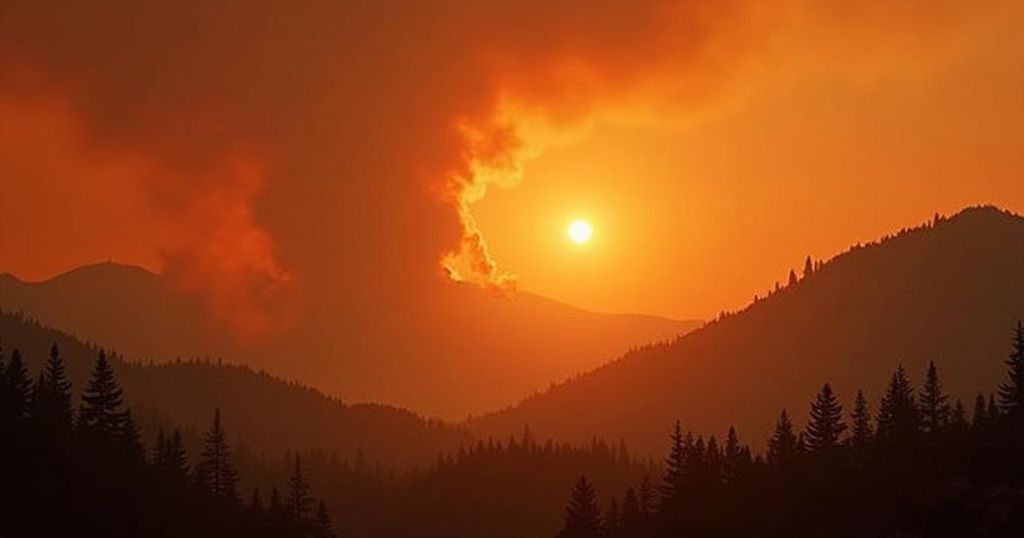South America is currently ravaged by wildfires that have obscured skies, particularly in the Amazon. These fires, primarily due to human activity and exacerbated by drought conditions linked to climate change, have led to health crises in affected communities, damage to ecosystems, and distress among indigenous populations. The situation has prompted urgent calls for collective action to protect the environment.
The recent wildfires in South America represent a severe environmental crisis, particularly affecting the Amazon rainforest. Once characterized by its vibrant blue skies, the region is currently shrouded in thick smoke due to widespread fires exacerbated by human activity and historical droughts, linked to the El Niño phenomenon and climate change. Major cities like Porto Velho, the capital of Rondônia, have experienced significant health issues related to the smoke, with a notable influx of patients suffering from respiratory ailments. Dr. Lilian Samara de Melo Lima, who operates a polyclinic in Porto Velho, indicated that the current situation exceeds previous years in severity, attributing the disaster to the reckless expansion of agricultural practices by ranchers and farmers. Port Velho’s inhabitants, along with residents of other affected South American countries, are suffering from the consequences of these fires, which have also devastated ecosystems and endangered local indigenous populations, such as the Ayoreo community in Paraguay. Additionally, Peru’s rapid spread of fires has resulted in numerous fatalities and declared states of emergency across multiple regions. Ecuador’s paramedic, Christian Rivera, highlighted the unprecedented scale of the emergency in Quito, declaring it as a clear indication of the impact of global warming. Furthermore, reports indicate that Bolivia’s eastern lowlands have also been significantly affected, with declarations of national disaster made by the government as vast swathes of land have been consumed by flames. Health secretary Marilene Penati lamented the situation, expressing concern for the health of both the local population and the planet at large, echoing sentiments previously expressed by Pope Francis concerning humanity’s disconnection from nature and the urgent need for collective action to address this mounting crisis.
The environmental crisis currently affecting South America, particularly the Amazon rainforest, has been caused largely by human-driven activities such as deforestation, agriculture, and land clearing through fire. The region is suffering from unprecedented wildfires that are shrouding various areas in smoke, leading to severe health issues among local populations. The phenomenon has been exacerbated by the natural climate cycle of El Niño and an ongoing drought linked to climate change. Indigenous communities and fragile ecosystems across the continent are facing dire repercussions, demonstrating the broader impact of these environmental disasters and raising urgent calls for action.
In conclusion, the current wildfire crisis across South America signifies a critical environmental challenge that extends beyond national borders. As fires continue to ravage the Amazon and surrounding regions, the devastating consequences for human health, regional ecosystems, and indigenous communities are starkly evident. Experts emphasize that immediate, collective action is necessary to combat the increasing threats posed by climate change and to protect the fragile ecosystems integral to the planet’s health, echoing the urgent message that ‘the Earth is crying out for help.’
Original Source: www.theguardian.com






